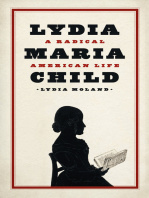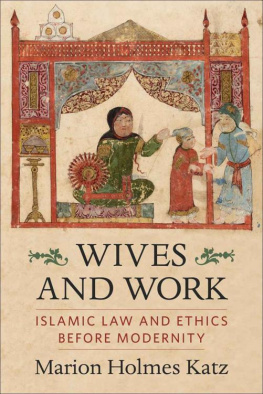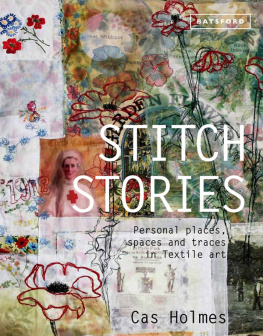Lydia Becker
A CAMEO LIFE-SKETCH
The Nursery of Ideals.
It is rather the fashion nowadays to scoff at the woman of the early and mid-Victorian period as a timid and foolish creature given to swooning on the slightest pretext, and the victim of a mysterious pride in physical delicacy and weakness. Probably the average woman of the fifties and sixties was not quite so strong and self-reliant as her sister of to-day. The average man still held to the clinging ivy and the stalwart oak ideal as being the best and most natural relation between the sexes, and the average woman, with the deeply ingrained habit of making herself pleasing to man, humoured him by no doubt often exaggerating her weaknesses and masking her strength.
But God Almighty made the women to match the men in those days as in all others, and the intellectual and patriotic men of the mid-Victorian era had no lack of help-meets fit for them: great souled women who helped to foster and bring to a vigorous youth the comparatively new-born babes of progress and reform.
The Pioneer Women.
What a magnificent roll-call of names rings down from the fifties and sixties! Names of pioneer women who set valiantly to work to clear the ground of the weeds and rubbish of centuries, and with infinite perseverance to beat out a path to a juster and fuller existence for their sex.
One after the other the citadels of education, science, art, social service, politics were attacked, and one after the otherwith the exception of the lastthe portals of these jealously guarded male monopolies were grudgingly opened. The weapons of abuse, misrepresentation, and personal ill-usage were all freely used against the women in the fight, but they glanced harmlessly off the shields of courage and a high, unfaltering purpose that the last-century Amazons bore. Verily, there were giants on the earth in those daysboth masculine and femininebut more particularly feminine.
The very sound of their names sets womens blood atingle to-day with pride in the heritage that has been bequeathed to them by those pioneers. They roll off the tongue like a call to arms! Florence Nightingale, Josephine Butler, Lydia Becker, Sophia Jex Blake, Mrs. Bodichon, Viscountess Amberley, Isabella Tod, Priscilla Bright McLaren. These, and many others equally courageous, have laid down their weapons now, but there are some of their comrades in arms still fighting in the ranksa very precious possession for the women of the twentieth centuryMrs. Fawcett, Dr. Garrett Anderson, Madame Belloc, Mrs. Wolstonholme Elmy, Miss Emily Davies, Mrs. Haslamnames indeed to conjure with.
The Leader of Votes for Women.
Lydia Ernestine Becker was pre-eminently the leader: of the Womens Suffrage Movement during its early years. It was her judgementmore than any other perhapsthat moulded its policy, and brought this hotly contested question from a stage of general contemptuous scorn to that of an equally general respect for its inherent justice.
She was born on February 24th, 1827, at Cooper Street, Manchester, and was the eldest of fifteen childrena typical nineteenth century family. Her father, Hannibal Leigh Becker, was of German descent, his father, Ernest Hannibal Becker, being a native of Thuringia, who came to England when quite a young man, and settled in business in Manchester. Her mother was a member of an old Lancashire family, the Duncofts of Hollinwood.
Her Early Days.
The first few years of Lydias life were spent in Manchester, but when she was still very young the family moved to Altham, near Accrington. They lived in a large house on rising ground, with a fine view of Pendle Hill, and in this beautiful country home the greater part of her life was passed. There was an interval of some years during which they lived in Reddish, where Mr. Becker had calico printing works, but they went back again to Altham.
Our life at Reddish was a quiet and uneventful one, writes one of Miss Beckers sisters in the midst of lovely scenery and flowers. The agitations in the political life of the period to some extent affected us. I remember the excitement when it was thought the Chartists might find their way to our peaceful valley; also the year of revolutions, 1848, when Louis Philippe landed in England as Mr. Smith. And the stormy discussions connected with the Anti-Corn Law League were reproduced in miniature in our juvenile circle!
Interest in Science.
In 1850 we moved from Reddish back to Altham. The drives and walks about presented great attractions to us, as the scenery was on a bolder, grander scale than that round our pretty valley at Reddish. Lydia entered with zest into the study of the plants of the neighbourhood. I remember her pleasure in finding some which were new to her.
Botany and astronomy were always her favourite studies; as a friend of her youth expressed it, Lydia knew and loved every little flower that grew. The intense delight in nature cultivated during those years in the country remained with her all her lifea never-failing source of pleasure and interest. In the midst of the anxieties of her political work in London, writes Dr. Helen Blackburn in her History of Womens Suffrage, she found her best refreshment in a run down to the gardens and conservatories at Kew. Visitors to the office could always know when Miss Becker was in residence by the flowering plants she always gathered round her.
A Visit to Germany.
In 1844when she was about seventeenMiss Becker paid a long visit to relatives in Germany. I have had the privilege of reading the letters that she sent to her home circle during that time, and they show that she possessed even at that age unusual powers of shrewd observation and reflection. The stilted language of the period in which they are written, probably makes a lack of humour and the serious bent of her mind more obvious than they would otherwise be. She frequently expresses keen appreciation of the beautiful scenery with which she was surrounded, but, on a holiday jaunt, when the heads of most girls of her age would have been filled with thoughts of pleasure and amusement, she wrote home asking for political news. I miss the newspapers more than all the English comforts put together, she said.
Honours from the Horticultural Society.
When she returned home to Reddish, at the end of the year 1845, a great bonfire was kindled, writes Miss Esther Becker. Soon after her return she began to give us lessons in German. As a teacher her powers were remarkable; she seemed to go right down to the bottom of things .... In 1862 (I think), she won the gold medal from the Horticultural Society of South Kensington for the best collection of dried plants made within a year. She adopted the plan of drying the plants very quickly under great pressure and in heat. The competition was open to the United Kingdom. Her pleasure in botany was intense, and her knowledge of it thorough and complete. She had some interesting correspondence with the celebrated naturalist, Mr. Charles Darwin, in connection with some facts that she had observed in the course of her studies.











